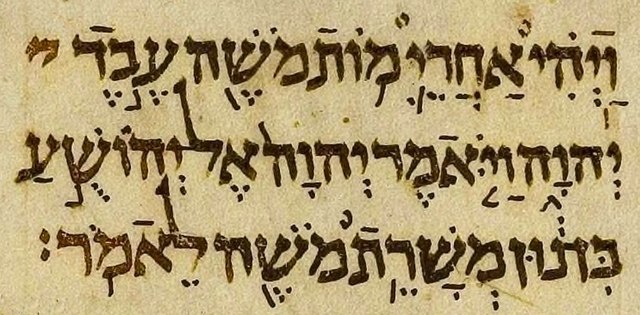Halakha, also transliterated as halacha, halakhah, and halocho, is the collective body of Jewish religious laws that are derived from the Written and Oral Torah. Halakha is based on biblical commandments (mitzvot), subsequent Talmudic and rabbinic laws, and the customs and traditions which were compiled in the many books such as the Shulchan Aruch. Halakha is often translated as "Jewish law", although a more literal translation of it might be "the way to behave" or "the way of walking". The word is derived from the root which means "to behave". Halakha not only guides religious practices and beliefs, it also guides numerous aspects of day-to-day life.
A full set of the Babylonian Talmud
Sefer Torah at Glockengasse Synagogue (museum exhibits), Cologne
Hasidim walk to the synagogue, Rehovot, Israel.
A mixed-gender, egalitarian Conservative service at Robinson's Arch, Western Wall
Hebrew is a Northwest Semitic language within the Afroasiatic language family. A regional dialect of the Canaanite languages, it was natively spoken by the Israelites and remained in regular use as a first language until after 200 CE and as the liturgical language of Judaism and Samaritanism. The language was revived as a spoken language in the 19th century, and is the only successful large-scale example of linguistic revival. It is the only Canaanite language, as well as one of only two Northwest Semitic languages, with the other being Aramaic, still spoken today.
Portion of the Isaiah Scroll, a second-century BCE manuscript of the Biblical Book of Isaiah and one of the best-preserved of the Dead Sea Scrolls.
The word IVRIT ("Hebrew") written in modern Hebrew language (top) and in Paleo-Hebrew alphabet (bottom)
A silver matchbox holder with inscription in Hebrew
Aleppo Codex: 10th century Hebrew Bible with Masoretic pointing (Joshua 1:1).








